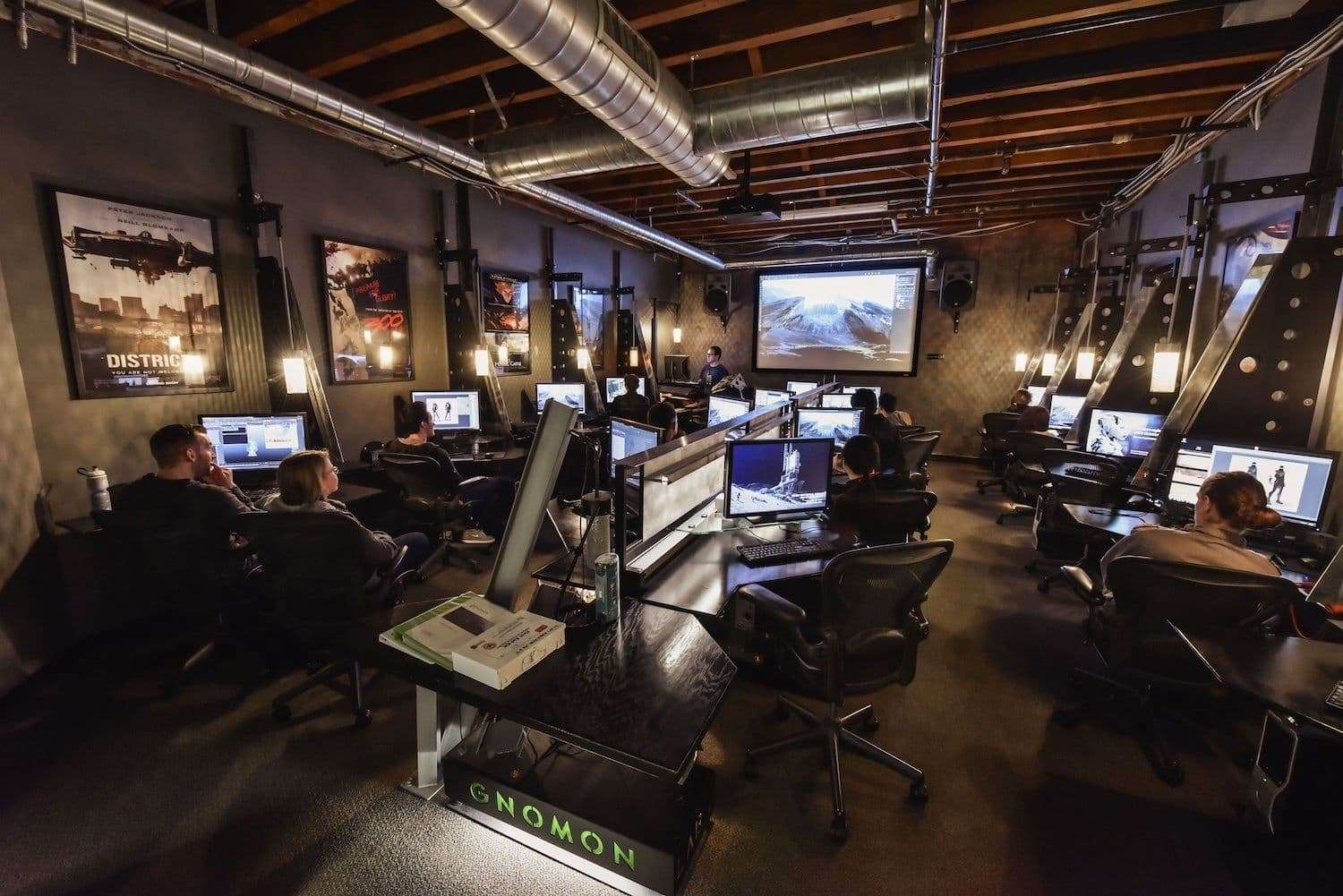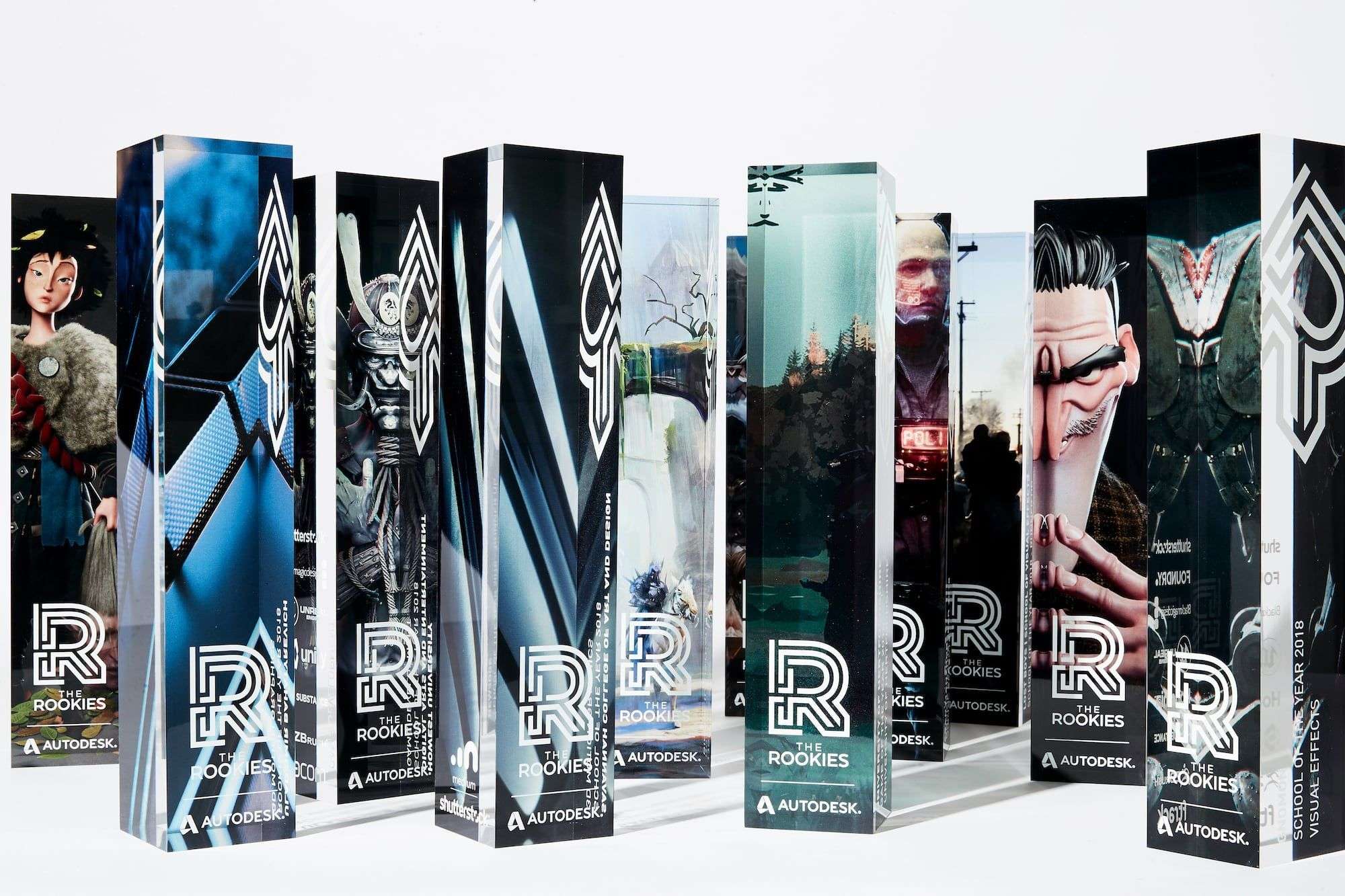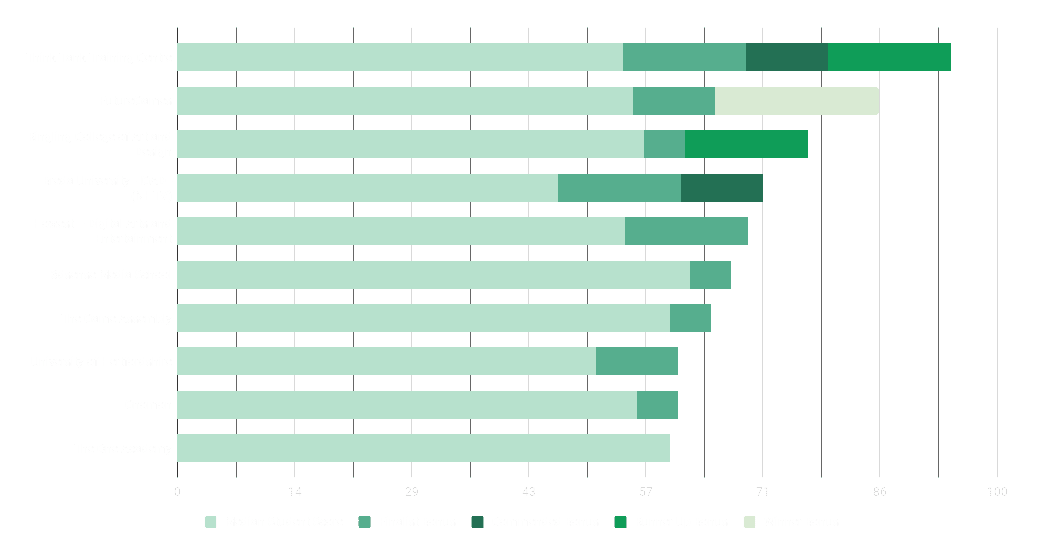
Beginner's Guide to becoming a Video Game Designer
This guide is for absolute beginners who are trying to find a career that compliments their passion for playing games, technology, design, coding and digital art.

This guide is for absolute beginners who are trying to find a career that compliments their passion for playing games, technology, design, coding and digital art.
This guide is for absolute beginners who are trying to find a career that compliments their passion for playing games, technology, design, coding and digital art. You are the type of person who knows that finance and medicine really isn't your thing. You also know you never want to wear a suit to work either. However, you need some help getting started. It's also a great guide to share with your parents and guardians who are trying to understand what the hell you are rambling on about, and why you are so excited.
Game designers are the creative minds behind every good game. They thrive on new ideas and are always thinking about how users will interact and enjoy the characters, environements and experiences they have created. A great game designer possesses a combination of technical knowledge, artistic skill and most importantly, the ability to communicate and understand people.
Essentially they come up with the games' concepts, characters, setting, story, and game play. Game designers work closely programmers to create the scripting language and artistic vision for a game so technical knowledge is as important as creative flair.
Maybe because it's a career that involves the perfect mix of story telling, cutting-edge technology and creativity. It could also be because you love playing games and want to help bring to live your creative ideas. Maybe you want a career that allows you to travel the world or even work remotely from home. Or maybe it's because you love drawing and building things with your hands and on the computer. There are so many reasons why you would want to work in Gam and there are dozen of possible career paths open to you across multiple industries.
There are plenty of jobs available to people in the video game industry. For those of you interested in the more creative role such as Game Design, there are definitely some important skills you should focus on early in your training.
The skills I'm referring to are not related to software and technology. Those will come later when you really start digging into your training. However, a solid foundation in the following skills will help you for years to come:
As in any industry there are exceptions to the rule, however the following should give you a good idea of the average salaries involved with different stages of your career. This information has been sourced from multiple government databases and various industry surveys.

* Currency Conversion completed April 2019.
Entry Level Game Designer
US: $22,000 - $52,000 | GBP: £17,000 - £40,000 | AUD $31,000 - $74,000
Senior Artist
US: $67,000 - $100,000 | GBP: £52,000 - £78,000 | AUD $95,000 - $143,000
Supervisors & Management
US: $100,000 - $136,000 | GBP: £78,000 - £104,000 | AUD $143,000 - $190,000
There's never been a better time to learn video game design. The $140+ billion video game industry has more than tripled in size over the past decade with no signs of slowing. Beyond the booming market for video games on PCs and the major consoles (such as Xbox, PlayStation, and Nintendo) the increased popularity and sophistication of mobile and streaming technologies has opened up a new world of career opportunities for video game designers and developers.
Game designers with mobile development expertise will be especially sought after as smart phones and tablets, such as the iPhone, iPad, and a host of Android devices continue to change the way we access and play video games. In fact, mobile gaming now accounts for about half of this massive gaming market. Employment of video game designers is expected to grow by 26 percent from 2018 through 2028, blowing away the 5% average growth rate for all U.S. occupations.
Source: U.S. Bureau of Labor Statistics' Occupational Outlook Handbook
Traditionally speaking, there are two main ways to start learning game design. Go to a school, or teach yourself at home. It's very easy to find persuasive case studies for both learning paths so which should you choose?

In my opinion this depends entirely on you. Some people are great at learning skills themselves and don't need help for the heavy lifting part. On the other hand, there are people who need to be surrounded by others and need strict schedules and tasks. It really is up to you, and how you like to work.
Regardless of which approach to learning you take, the most important thing to do is start. It's that simple. Pick up a book, start sketching, watch and analyse a movie, watch documentaries about game design, attend local events. Just get started. If you don't have the passion and motivation for this, then it doesn't matter how good your education - you will never make it.
As mentioned, there are very strong debates for both sides of the learning process. Provided below is an overview of the most common advantages for both methods of learning.
Self taught Advantages:
University Advantages:
When looking for a school it's easy to get distracted by flashy advertising campaigns and glowing references from alumni. It's also a time when you could easily make a decision that you will regret because you didn't do your research. There truly are incredible schools out there, but there are also some that should not be allowed to teach at all.
Once you have narrowed down your list and you start talking with schools directly, here are a few questions to help you better understand which school is best for you.
What percentage of your teaching staff are working in the industry right now?
Be careful of schools that don't have any current or recent industry professionals. Many schools employ recent graduates that have little to no experience and just set you tasks, but are not able to help or relevant advice.
Who wrote your curriculum and what makes it better than other schools?
This will show you if they have strong internal educators or rely completely on external vendors to provide their training material.
How many of your students from last year have jobs?
This will help you understand how soon it takes for alumni to get a job and what percentage actually were employed.
Tip: Ask for names here if possible, then track them down on LinkedIn. Ask them directly if they would mind answering a few questions about their experience. Don't stalk people or be annoying. However, you will find that most people are super helpful and will share their thoughts openly.
What game design software will you teach me?
When you get this information, cross-check it against the list of recommended software here. Often schools will have contracts with certain companies which limits their access to industry approved software. Also make sure to ask if all their software is up-to-date.
What are the most common jobs people get after your course?
Make sure they are super specific with this one. Are graduates all working as Compositing Artists? Are graduates actually doing jobs that you want to do? Are graduates just working as Runners. This is a sure fire way to truly figure out what your employment chances are like after graduation.
Tip: Schools love to show all the films that their alumni have worked on. However, be careful with this one. Often they will use recent blockbuster films from alumni that attended 10+ years ago and were not the reason for the artists success.
Which studios do you have strong relationships?
Good schools will always work closely with leading studios. This means they will often have guest speakers, events and recruiters helping out to make sure the school is staying relevant and on track. Get the names of studios and do your own research, it will be pretty obvious.
What computer equipment and facilities do you get access to?
It's amazing how many schools don't even provide computers or even a working environment you'd want to spend time in. When studying game design, you are going to spend a lot of time at school, so make sure it's somewhere descent.
Wouldn't it be great if schools actually competed against each other to see who was the best school? This is exactly why the Rookie Awards was started back in 2010 and why their annual School of the Year rankings are so important to everyone.
The School of the Year rankings are based on the quality and performance of student work that is submitted to our judging panel each year for the Rookie Awards.
Most people feel that traditional school rankings that include peer and employer reviews, faculty to student ratio, citations and other data are not adequate when ranking the best creative schools. This might work for more traditional career paths, however when it comes to technical and creative such as Game Design which don't have standardised testing.

The official rankings for 2019 have been calculated based on the performance of students work submitted to our industry panel. Full details can be found further down the page about how we calculate and rank schools.

Founded in 2005 in Vancouver BC, Think Tank Training Centre specializes in the latest software, techniques and technologies used by 3D artists working in the film, television and video game industries. In 2018 we ranked #1 in Canada (#4 worldwide) for Game Development, and #2 in Canada (#3 worldwide) for Visual Effects, and have consistently placed in the top four in previous years. Think Tank's campus is an inspirational place of learning, delivering a one-of-a-kind mentorship program which gives our students the edge as they transition into fully-fledged working professionals.
Futuregames is a successful private game development school in Stockholm, Sweden. We are centrally located in the trendy and unique Södermalm district with our school at medborgarplatsen – the heart of Swedish games development cluster. Futuregames programs are 2-3 year Swedish higher vocational education mostly funded by the Swedish government. There are today 4 different programs within Futuregames: game design, 3D-graphics, 2D-graphics and game programming. The school offer 120 yearly seats within these 4 programs and all students mostly work in multiple parallel projects together with leading game studios until ending their education with a 30 week long internship.
Since 1931, Ringling College of Art and Design has cultivated the creative spirit in students from around the globe. The private, not-for-profit, fully-accredited college offers the Bachelor of Fine Arts degree in thirteen disciplines and the Bachelor of Arts in two. The College’s rigorous curriculum employs the studio model of teaching and immediately engages students through a comprehensive, program that is both specific to the major of study and focused on the liberal arts. The Ringling College teaching model ultimately shapes students into highly employable and globally aware artists and designers.
1 to 1 coaching by industry veterans of AAA industry. Latest technology from Sony, Nintendo & Microsoft. Features all relevant game development skills for a practical multidisciplinary education. Partnering with leading game companies around the world. International classroom, completely English-taught, 25% of students and 80% of staff is international. A tradition of winning game awards over the past year (Unity Awards, GGJ, Sumo Digital, Brains Eden, Microsoft, Dutch Game Awards). Top rated in Dutch higher education. The best and motivated talents are selected to start (180 students per year). Officially accredited degree by the Ministry of Education, students enter the program in one of three study paths: Visual Art, Programming or Design & Production.
Digital Arts & Entertainment (DAE) is a state-of-the-art, yet accessible, English-taught Bachelor’s degree. Fully accredited, 3 years, amounting to 180 ECTS credits. DAE is taught at Howest, a modern and unconventional university of applied sciences, situated in a small but beautiful historic city in Flanders, Belgium, in the heart of Western Europe. At DAE you can choose between 4 study majors: Game Development, Game Graphics Production, Independent Game Production or 3D Production & VFX. It is an industry-approved and award-winning curriculum, with alumni in leading companies and studios all over the world, such as Blizzard, Bungie, Ubisoft, DICE, Rocksteady, Guerrilla Games, Larian, Unity, Studio Gobo, Sumo Digital, ILM, MPC, DNeg and many more.
3dsense Media School is a pioneering digital arts school in Asia, preparing students for careers in the media and entertainment industry for over 13 years. Dedicated to providing a real-world education, 3dsense aims to mold the next generation of elite digital artists and designers for the global industry. Some of the properties her alumni have worked on include Interstellar, Star Wars: The Force Awakens, The Avengers, The Hunger Games series, Assassin’s Creed, Game of Thrones and many more. 3dsense was recently ranked top 20 in the world and 1st in Asia in the CG Student Awards 2015, School of the Year category.Besides education, the school also plays a major role in fostering a vibrant arts & design industry through its events and masterclasses.
The Game Assembly is a Higher Vocational Education situated in Malmö, Sweden, and we have educated 7% of the Swedish games industry.We educate game artists, game programmers, level designers, game animators and technical artists. 50% of their education is individual development where the students dive into their handicraft and 50% is focused in how to make games together. We are strong believers in the group effort to get the best result - a fun to play game.The Game Art program at The Game Assembly focuses mainly on creating 3D game models. Within game art there are plenty of opportunities during the game projects to appeal to a wide audience, whether you like drawing concept art, modeling 3D models, animating characters, etc.
The University of Hertfordshire is an innovative and enterprising university, challenging individuals and organisations to excel.We are the UK’s leading business-facing university. The University of Hertfordshire is an ambitious and entrepreneurial university with an international vision, putting students at the heart of what we do.Industry focused courses, state-of-the-art learning facilities, a new £38m entertainment venue and opportunities to study, take a years internship or work aboard are just some of the great aspects of what we have to offer.
Since 1997, Gnomon has been educating many of the world’s best digital artists. The school in Hollywood, California, offers a variety of educational options to help students reach their goals in the entertainment industry, with a BFA degree in Digital Production, full-time vocational programs, specialised courses for high school students, and over 100 individual courses for professional enrichment. The founders launched Gnomon in 1997 with the support of the entertainment industry to help meet the demand for well-trained creative talent in the growing field of digital entertainment.
For over 25 years of creative education excellence, The One Academy has been renowned as one of the best art and design colleges in Asia with over 2,500 existing students in two of our main campuses. We are committed to our role as a world-class education provider by nurturing creative pioneers who can brace and surpass international standards.To achieve this, we provide comprehensive courses, for instance, Film Visual Effects and Digital Animation with Game Development, in collaboration with industry masters such as Andrew Gordon, Pixar animation director, Eduardo Pena, concept artist of The Hobbit trilogies, and also Ubisoft, to name a few.
Starting out in game design can be pretty daunting, but the good news is that the community is super friendly and supportive. We are all super passionate about our little industry and we've all been in your position so we know what it feels like. This is just a small snapshot of the essential communities and blogs for game design artists that you should participate in.
The following software is predominantly used by professional studios doing high profile work and you will be in a great position if you start with any of these products.
One thing to remember is that the software doesn't make the artist. Regardless of what tool you start with, you just need to start. Moving from one software to another is easy, but starting is the hard part. Sticking with it is even harder.
Game design artists are always in high demand. Films and not slowing down, Netflix is not going anywhere and advertising agencies are always trying to push the barriers of the advertising campaigns. Here is just a small taste of some the big names that you could have on your resume.
If you have read this far, then it's clear that you care, but it also means that you are probably still a bit confused by all this and just want to make sure the right decisions are made. The Video Game industry is relatively new and there are so many avenues into this industry crossing creative and technical skills, so it's a lot to take in but here are some key points you should remember:
I hope this has given you a good overview of the video games industry and the career prospects available to you. It's really up to you now, you need to put in the hard work. You need to take the next step using the advice provided in this guide.
So do yourself a favour, grab the following list and start working though it. One step at a time. That's all it takes.
Thanks for reading this guide. I plan to keep updating this often to make sure it remains relevant and helpful. Please reach out to me via the comments section with any suggestions or questions.